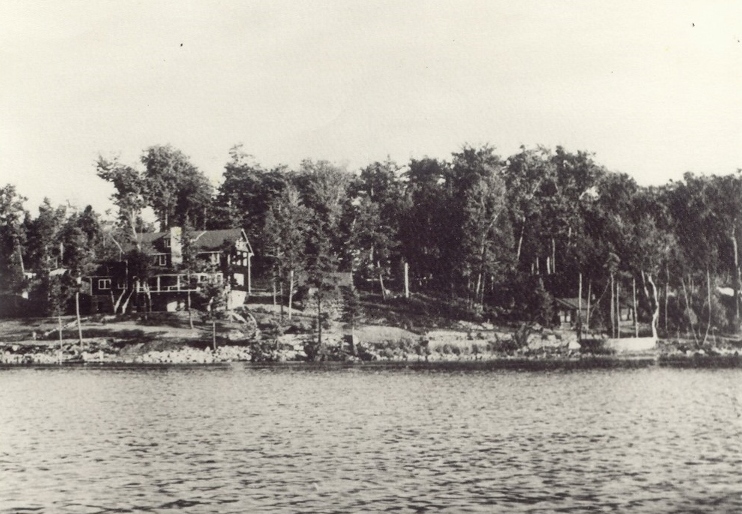 |
|
Tynoka Lodge on Bella Lake, built in 1936-1937 (Heather MacLean)
|
A brown cabin with red trim, tucked into the shore of Bella Lake, recalls Tynoka, a gracious lodge that welcomed guests between 1936 and 1967. With a largely American clientele, Tynoka was “regarded as one of the best furnished and completely equipped in this part of Muskoka,” according to a report of 1940 in the Huntsville Forester.
The name originated with Harley Tynan, who had a fishing camp between Bella and Rebecca Lakes on land originally owned by Hugh Fleming. A wedding held at “the summer camp of Harley Tynan” for a Cleveland couple in September 1936 made the front page of the Forester and included guests from neighbouring cottages, Camp Billie Bear, and Limberlost. Tynan was best man and his wife the matron of honour.
The Tynoka property was sold to the King family of Toronto the following year, and the lodge built by family member J. D. MacLean (Mrs. King and Mrs. MacLean were sisters). A group of Huntsville businessmen, including newspaper editor Harmon Rice, were invited to visit in September 1938. “The property was purchased from Mr. Tynan late last fall, and immediately the work of reconstruction and additions was undertaken,” Rice wrote. “The main lounge faces Bella Lake, from an elevated position, giving a particularly attractive view of the lake. The large rotunda was the first section to be visited. Its beautiful leather upholstered furniture, rubberized flooring, cheerful fireplace, baby grand piano and delightful bouquets of variegated colorings in gladiolus, gave it an enticing atmosphere.” Bedrooms and the several surrounding cottages featured twin beds and running hot and cold water, with accommodation for about 50 people.
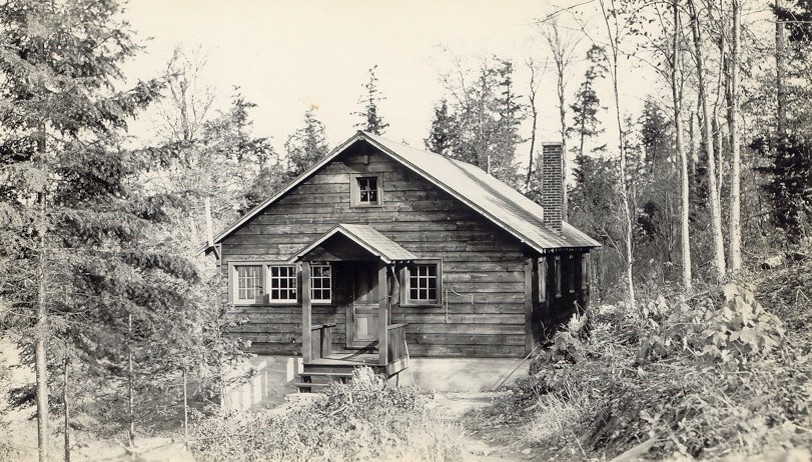 |
One of the cottages at Tynoka (Heather MacLean) | |
Fire was a present danger for Muskoka’s lodges and hotels, and Tynoka, like many others, was a victim twice, the first time only a few years after it was built. The main lodge burned to the ground in March 1940, with only two staff members on site. Although a crew from Limberlost arrived quickly, having been alerted by lumbermen camped nearby, the lodge was irretrievably in flames. “The loss of Tynoka by fire, this week, takes something from the community that can never be returned,” wrote Forester columnist Paul E. Rice. “Many of the furnishings of the hotel were heirlooms. Little articles handed down from one person to another, little articles with memories attached that can never be replaced. When fire runs rampant, there is always a loss.”
The loss was indeed devastating, but the Kings rebuilt and, in 1948, sold the lodge to Rex McRae. A real estate ad in the Forester in August 1947 described the 30-acre summer property that was clearly Tynoka, “located across the lake from Camp Billie Bear”: “Magnificent lake frontage, with splendid safe sand beach. On the property seven comparatively new, winterized cottages, all beautifully furnished.” The asking price was $25,000.
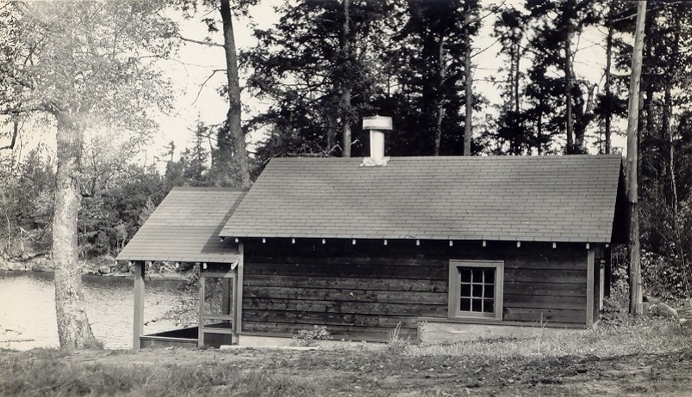 |
||
| Bunkie on the shore, formerly Tynoka’s generator building in the days before hydro (Heather MacLean) |
Tynoka continued its reputation as a well-appointed resort through the 1950s and 1960s under the direction of Bob McRae, after the death of his father in 1952. Fire struck for a second time in 1967, destroying the lodge building, and McRae subdivided the property. One purchaser, Rimas Gelezunas, built the boathouse and large log house that stands in place of the former building. The MacLean family, however, kept the name as well as some property and buildings. The former generator building on the shore, with Tynoka’s trademark red trim, now serves as a bunkie.
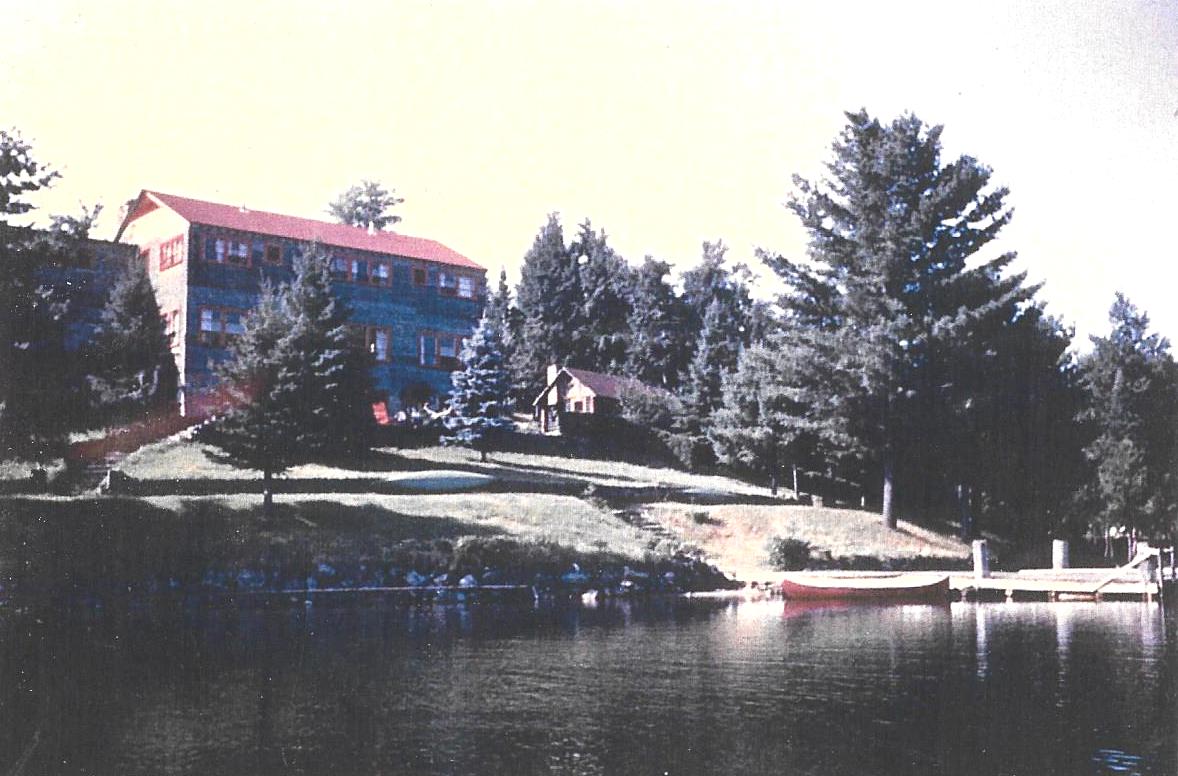 |
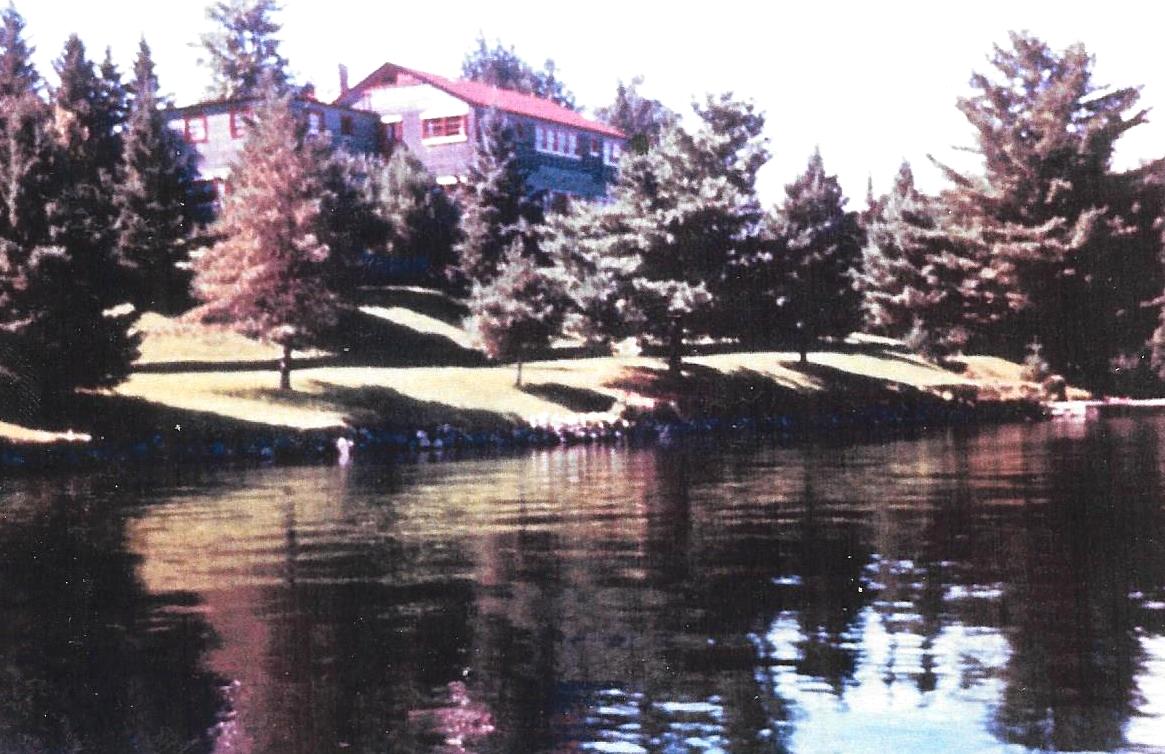 |
|
| Two views of Tynoka from the early 1960s show the waterfront and landscaped grounds (John Ross) |
Sources:
Burgess, David, “Fieldale Road” (Presentation at Lake of Bays Library, Dwight, October 2013).
Huntsville Forester, “Beautiful Lakeside Wedding,” September 3, 1936, p. 1; “Tynoca [sic] Important Addition to Tourist Development,” September 8, 1938, p. 1; “Local Briefs: Mrs. McLean Bereaved,” June 15, 1939, p. 1; “Tynoka Reduced to Smouldering Ruins,” March 21, 1940, p. 1; “Former Resort Operator in Tourism Department,” April 24, 1969, p. 4



